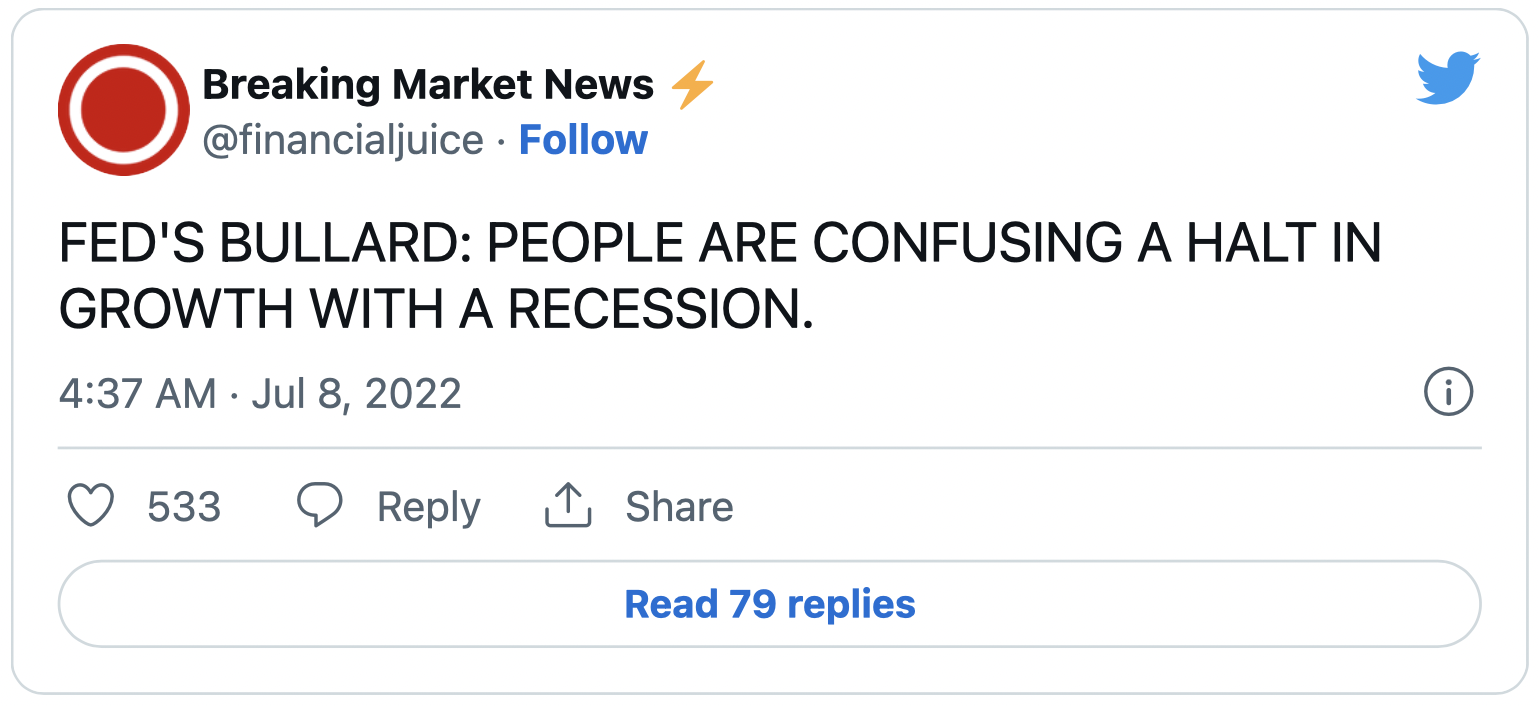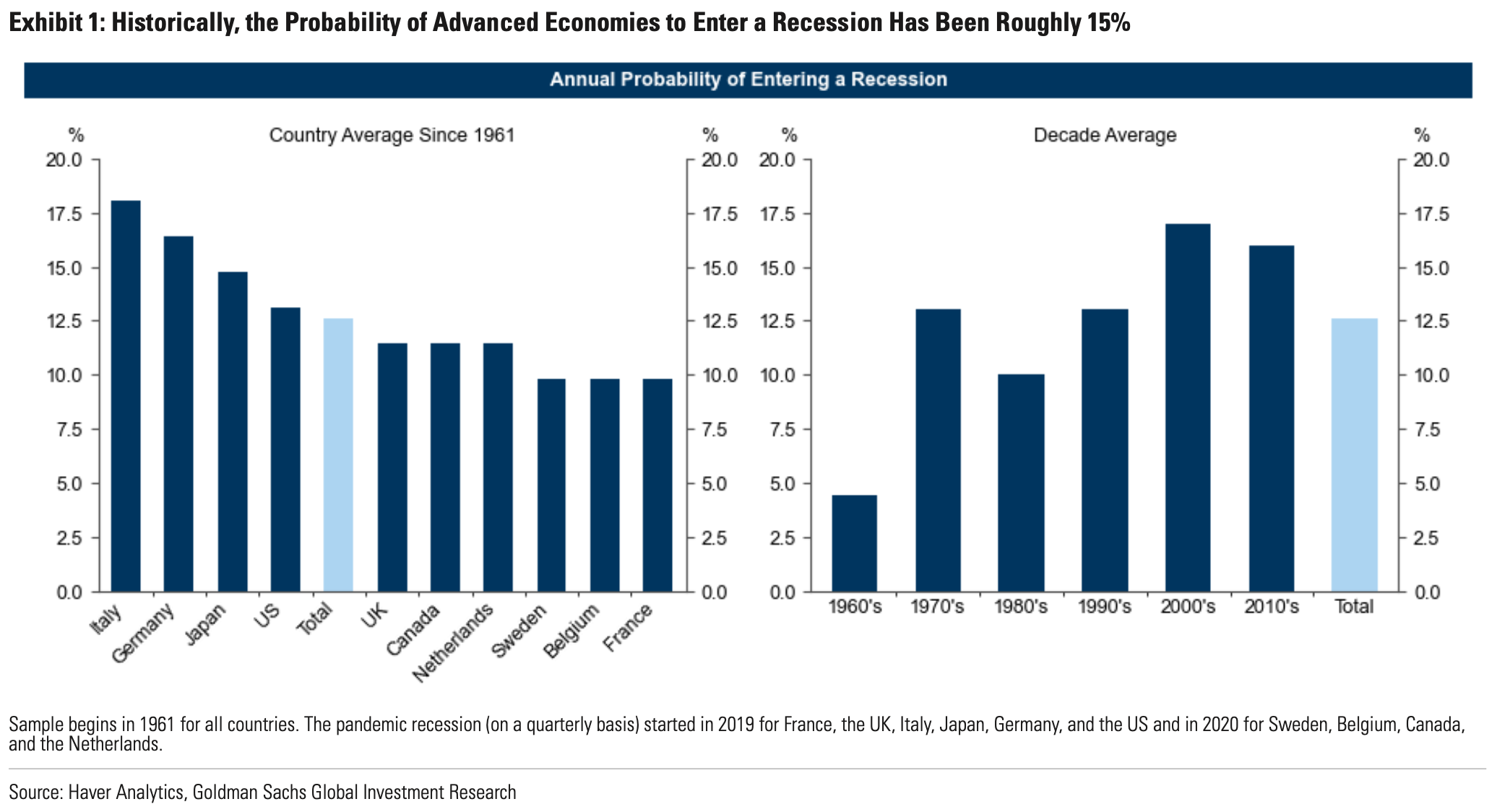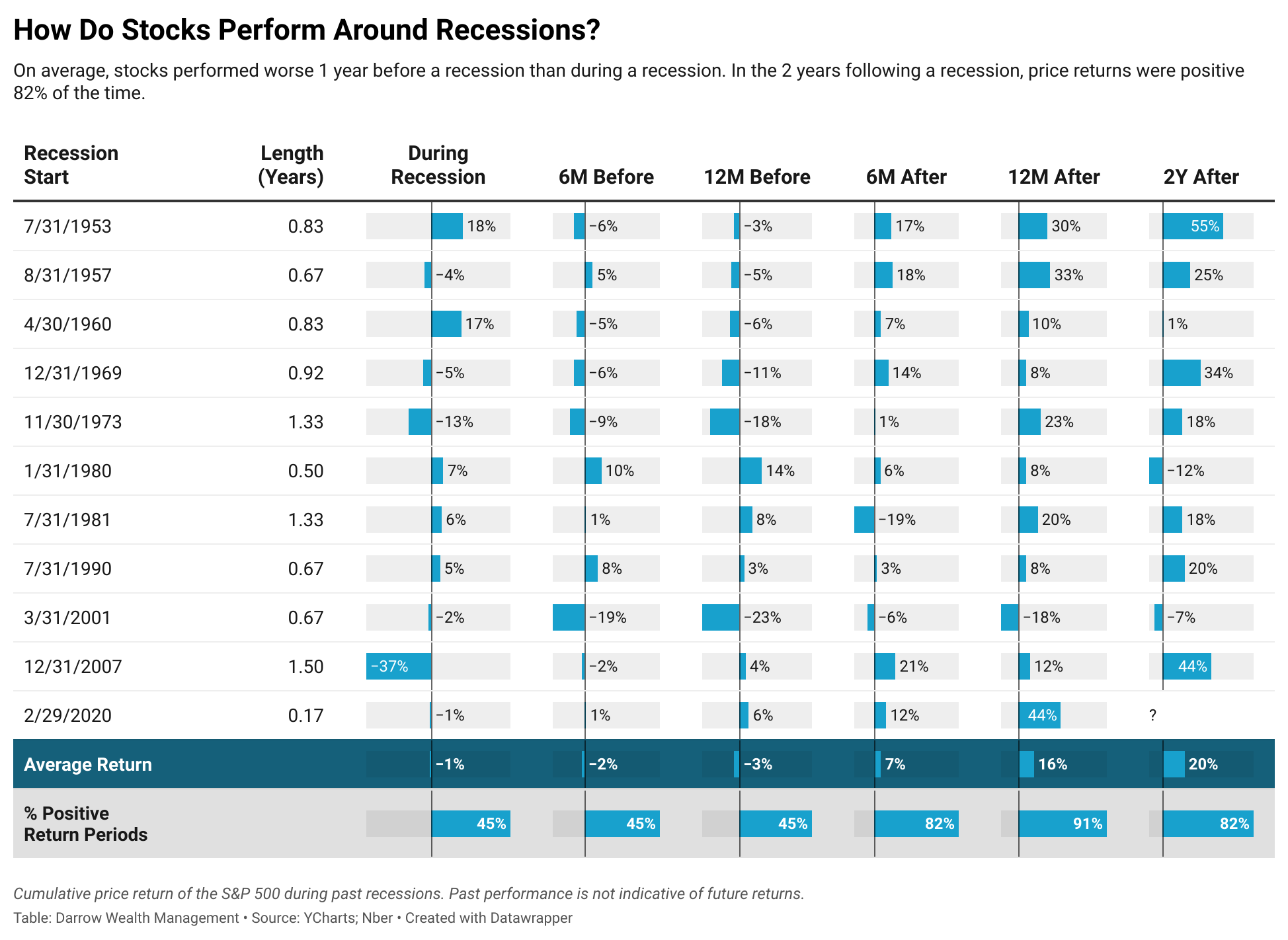Goldman Sachs puts a US recession at 30%. Here's why that will turbocharge stocks
Famed Canadian-American economist John Kenneth Galbraith once said that the only function of economic forecasting is to make astrology look respectable.
Not the most glowing testimonial for something a lot of smart people - including Galbraith - devote their time towards.
But here's the reality - investors make decisions based on what they think is going to happen. That's what asset allocation is all about, after all. Asset classes perform differently given what the economy and market are doing today and, maybe more importantly, what people expect them to do in the future.
Goldman Sachs has just put its recession stake in the ground. Or should I say, three stakes - one for the US, the UK, and Europe. This wire will discuss those findings, throw in some reference to Australia, and tell us about how stocks might perform during and post a recession.
But let's tee up the ball first.
Recession, you say? Which sort?
The word "recession" is bandied about, fast and loose. This is to be expected, really, because it has no single definition.
For this reason, we end up with confusion like this:

Three definitions dominate.
There's recession defined as a sustained period of weak or negative growth in real GDP accompanied by a significant rise in the unemployment rate.
There's the "technical" definition: two consecutive periods of negative growth.
And then there's the one proffered by The National Bureau of Economic Research (NBER) in the United States: a period between a peak and a trough in the business cycle where there is a significant decline in economic activity spread across the economy that can last from a few months to more than a year.
Recession risk differs across the Atlantic
Using the NBER definition, Goldman puts the risk of recession in the next year at 30% in the US, 40% in the Euro area, and 45% in the UK.
"Currently, across the advanced economies, unit labor cost growth, core inflation, and the expected total increase in the policy rate are generally running at levels similar to the run-up of the typical advanced economy recession," the report states.
"Higher measures of economic overheating in the US, UK, and Canada than in Japan and the Euro area suggest that the next recession may be somewhat less shallow in these English-speaking G10 economies."

When you look at the US, the 30% probability of recession is more than twice what it's averaged since the 90s (12%) and 7% higher than the 23% average recorded between 1855-1990.
"Across advanced economies, unit labor cost growth, core inflation, and the expected total increase in the policy rate are generally running at levels similar to the runup of the typical advanced economy recession, with more overheating in the US, UK, and Canada and less in Japan and the Euro area."
The chance of recession is further compounded, in Goldman's view, by limited ammunition in the fiscal and monetary chambers to combat inflation without killing growth.
"... the monetary and fiscal policy response might be more limited than usual because policy rates remain close to their effective lower bound while both central bank balance sheets and government debt levels are very large by historical standards."
Australia lucky no more
Australia went almost 30 years without a recession, then had one thanks to the COVID-19 pandemic. While Goldman's doesn't have Australia entering that fate (yet), there are other research houses that definitely think we will.
According to Nomura's Andrew Ticehurst, "Australia slides into recession in 2023, as progressive rate hikes eventually bite, hitting an extended consumer."
Deutsche Bank's Phil O'Donaghoe, for his part, thinks Australia will enter a recession in 2023 if the RBA cash rate tops 3.1% by the end of this year.
How will stocks respond?
Before taking a stab at how stocks might respond should we fall into recession, here's how they've responded so far.
The S&P 500 is down -12.09% over the past twelve months, and almost 20% this calendar year. If we're talking the ASX 200, those numbers are -12.72% and -19.64% respectively.
When making prognostications about what will happen to stocks it's important to understand that the stock market is a leading indicator, which is to say, it prices in the future, not the present day.
Because of this, most of the damage done to stocks takes place before, not during, a recession. So even if we fall into recession, the darkest days in markets may already be behind us.

This is borne out in the data.
According to the NBER, if you look over the past 11 recessions, the S&P 500 lost an average of -3% a year prior to a recession and -1% during a recession.
You'll want to be invested before the tide turns, with the index returning an average of 16% a year after a recession and 20% two years after.
Reassuringly, the performance of equities in the recovery phase is typically due not to higher price-to-earnings multiples, but instead to improved earnings performance.
According to Tina Fong, a strategist at Schroders:
"... during the recovery phase, equities are not driven by a re-rating in the market.
(Re-rating being the change in the amount investors are willing to pay for a company relative to its earnings, or the “price-earnings ratio.)
"Instead, equities in the recovery phase are driven by stronger growth in earnings, or specifically earning per share (EPS)."
What a good note to finish on.
Never miss an insight
Enjoy this wire? Hit the ‘like’ button to let us know. Stay up to date with content like this by hitting the ‘follow’ button below and you’ll be notified every time we post a wire.
Not already a Livewire member? Sign up today to get free access to investment ideas and strategies from Australia’s leading investors.

